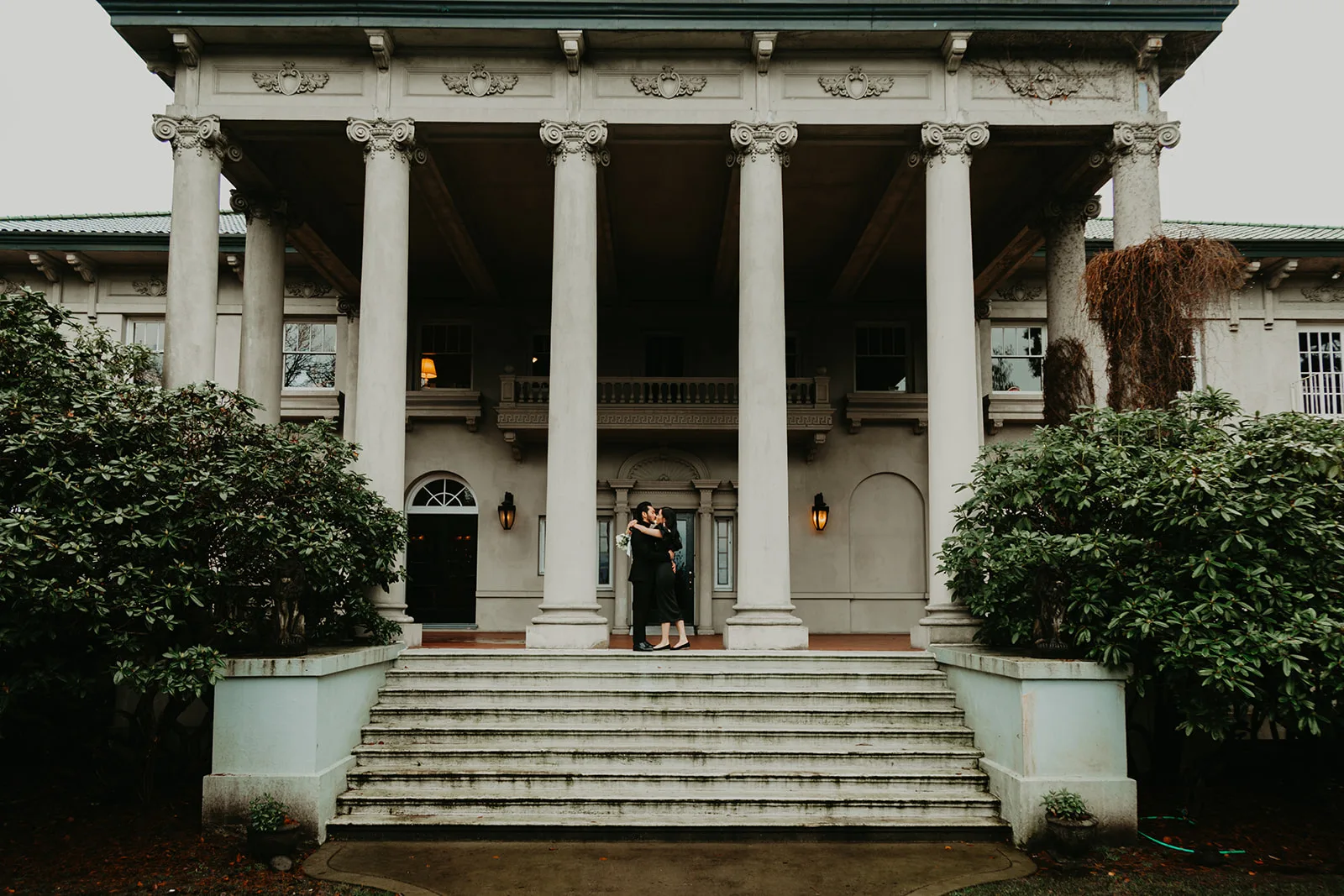Deciding on a wedding venue is one of the first wedding planning tasks you must cross off your list – but it can also be one of the hardest! After all, your venue sets the tone for your event and likely makes up most of your budget. So how do you make sure you’re choosing the right one? What should you look for in a wedding venue?
Below we’re covering 16 categories you’ll want to keep in mind when you look at venues. To help you make your decision don’t miss our wedding venue FAQs, plus figure out how many wedding venues to visit.
Availability of the venue for your wedding date
The first thing you need to confirm with a potential venue is availability. If the venue isn’t available for your date, move on! But what many couples don’t know is it’s usually the venue that decides the date of your wedding.
In most cases, couples will tour wedding venues and inquire about availability for a certain year or season. The venue will then respond and let you know what days they have available in that timeframe. If you’re happy with the options, you’ll select one and that will become your wedding date.
Unless you’re very attached to a specific date, it’s best to go into your wedding venue search with a rough timeframe in mind (e.g. summer 2024) rather than a specific date. That way, you can be more flexible and have more options of venues and vendors to choose from.
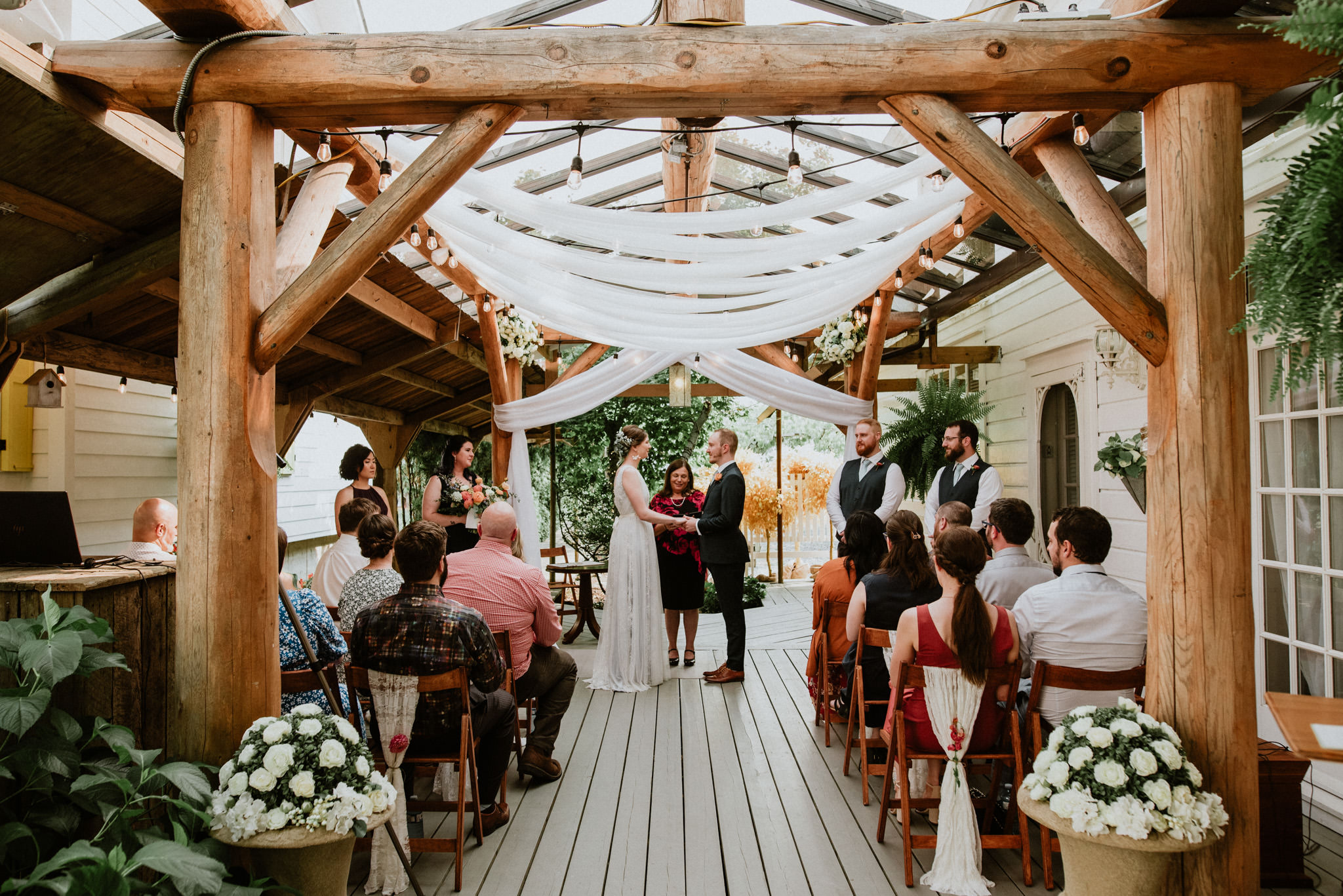
by Ronnie Lee Hill Photography
Spaces/rooms available
The next thing to look for in a wedding venue is the space itself. Can the venue host both your wedding ceremony and reception or will you need a second venue? Do they host both in the same area or two separate areas? What spaces are exclusive to your wedding and which ones are shared?
You’ll also want to inquire about other spaces you may need for your wedding. If you’re planning an outdoor event, is there a back-up indoor option in case of bad weather? Is there a getting ready space you can access? If you need a space for childcare, cocktail hour or a tea ceremony, ask if those are available.
Location of the venue
When you’re three pages deep in a Google search for wedding venues in your area, you may not realize that you’re actually looking at venues hours away from your city. While the look and price tag of a venue are important, so is the location. Is your venue easy to get to? Is it easy to find or will your guests need instructions? Is it close to other wedding sites, such as where you want to take photos or where you’ll be getting ready?
Is there parking available or can it be accessed by transit? Do you have to arrange a shuttle for your guests? Depending on the number of guests you’re inviting, needing to have a shuttle or pay for valet parking can add up.
Style of the wedding venue
If you have a wedding style in mind, you’ll want to find a venue that matches that style. For example, if you’re planning a modern, downtown, chic affair, a barn in the suburbs probably won’t cut it. While you could bring in a lot of decor to turn that barn into a downtown loft, it would be very expensive. You’re probably better off changing styles or finding a venue that is already in your style of preference.
But if you don’t have a style in mind, that’s okay! Many couples will let the style of the venue dictate the style of their wedding. If you’re not committed to a specific look, let the natural style and atmosphere of the venue guide you. That way, you can lean into what the venue already offers and not have to spend as much money changing the style of the space.
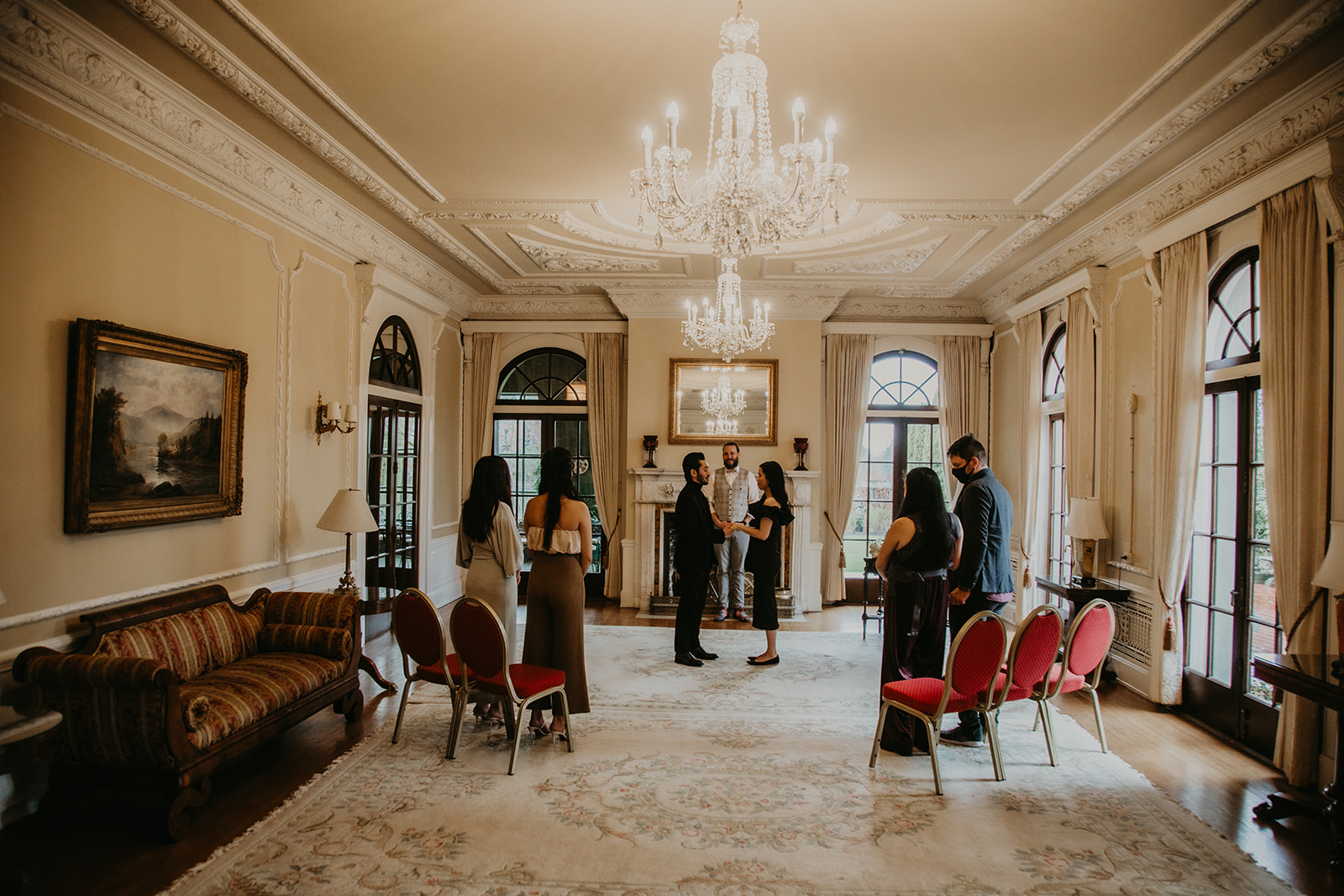
by Erica Miller Photography
Capacity and guest count
A very important thing to look for in a wedding venue is the right capacity. Can the venue fit your number of guests? Most venues will have strict capacity limits, determined by the fire code, about how many people can attend a sit-down or standing celebration. Make sure you inquire about this number and remember that it often includes the couple and vendors who are in the space too.
While too many guests is a fire hazard, you also don’t want to book a large venue with too few guests. Having an intimate reception for 50 in a ballroom for 200 can feel uncomfortable and make it look like you had a bunch of no-shows. Luckily, most venues solve for this by putting up room dividers or offering smaller spaces for smaller parties. Make sure to ask about this at your wedding venue site tour and visit a space that would work for your guest count – not too big and not too small, but just right!
Timing on the big day
Just because your wedding is booked for a specific day doesn’t mean you get that entire day at the venue. Most venue rentals are for a set number of hours and will require you to pay more to extend your time. Make sure you ask exactly what hours you have the space so you can plan your wedding itinerary accordingly.
Is there a hard time you need to be out by? Is that when guests need to leave and you can start cleaning or when all clean up needs to be done? When can guests arrive? Can vendors arrive earlier to set up? What about the wedding party?
You also want to ask if other weddings will be happening at the same time as yours or right before/after your wedding. At larger venues, it’s common to have multiple weddings at the same time. Some venues will have multiple weddings on the same day, meaning you will need to start your wedding on time and may not have access to spaces, such as a getting ready room, for as long as you’d like.
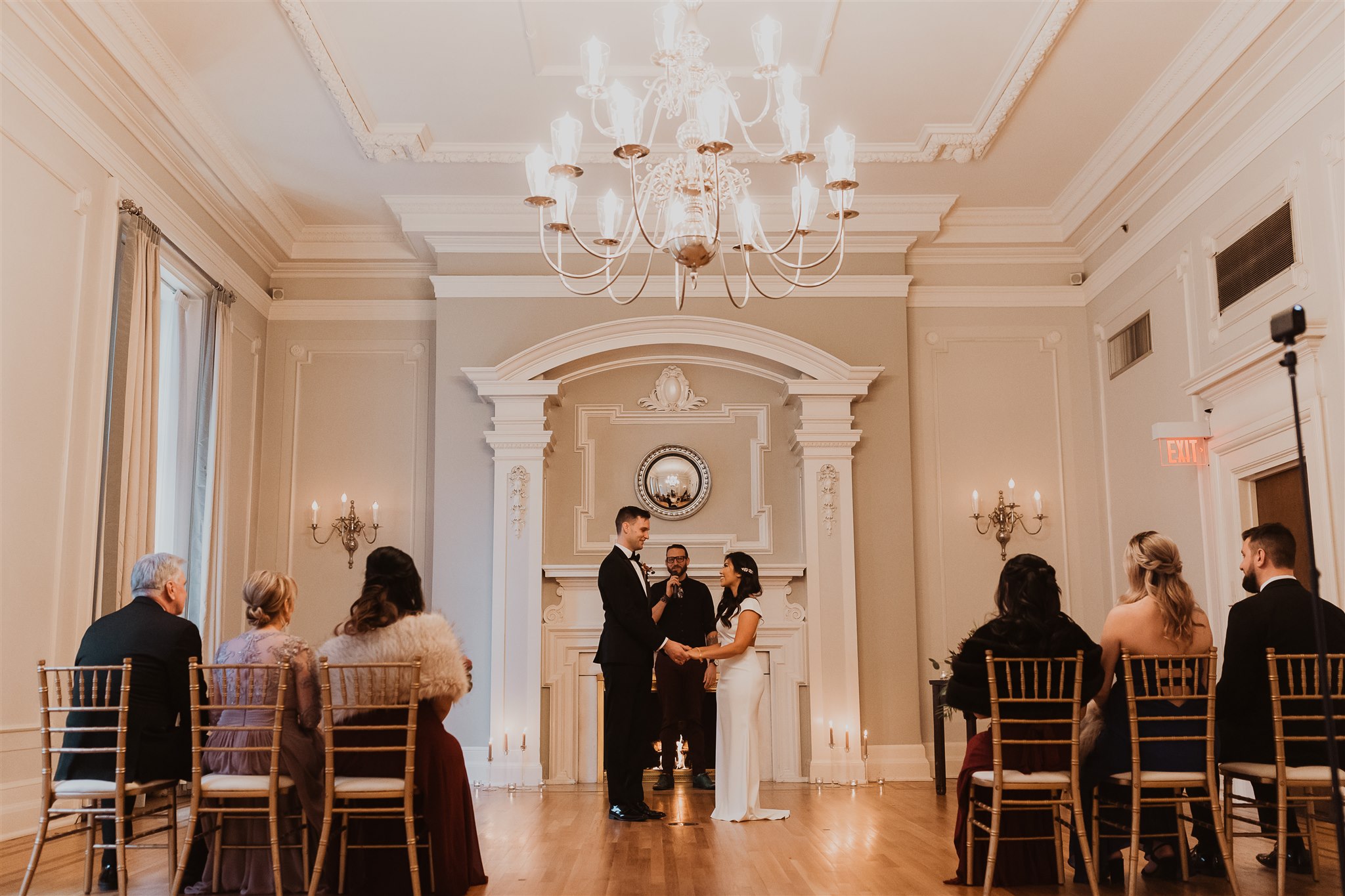
by Indy Hunjan Photography
Cost of the wedding venue
Obviously one of the huge things you need to know about your wedding venue is the price. How much does the wedding venue cost? You’ll also want to ask some follow up questions to ensure you understand what you’re paying for.
What is included in the cost? Some venues will include things like chair rentals or AV equipment in the cost and others won’t. Does the cost change if you add more guests? Are you paying per head or a set number for the full space? Is there a minimum spend? Are there fees on top of this cost, such as taxes and tips? When is the payment due and is there a deposit you need to pay to secure your booking?
Inclusions and venue packages
Related to the cost of the venue is any inclusions or packages that you’re buying. Some wedding venues simply charge you for the space and others charge you for a venue package that may include catering, decor, drinks, rentals, etc. Inquire about exactly what is included in your booking – what is part of the total cost and what costs extra.
Are there specific vendors you need to work with? Some venues have a list of preferred vendors (vendors they recommend) and others have a list of vendors you must work with, such as an in-house catering team. In some cases having in-house vendors, such as catering or bar services, can be helpful. Planning is smoother and you know that these vendors are familiar with the venue. But it limits couples who would prefer to bring in their own vendors.
Catering: In-house or brought in?
On the topic of catering, it’s important to ask your venue if you can bring in your own food and drink or if you need to use in-house or select catering vendors. If you can bring in your own, does it need to be from an approved vendor list, from a professional grade kitchen, or can your grandma bake your cake? Can you BYOB and, if so, do you need to get your own liquor licence? Are there corkage or other serving fees?
If your venue provides catering, you’ll want to look into the menu and set up a tasting to make sure you like the food. Can you make requests for favourite dishes? Can you modify any dishes on the menu? Can the caterer accommodate any dietary restrictions you or your guests might have?
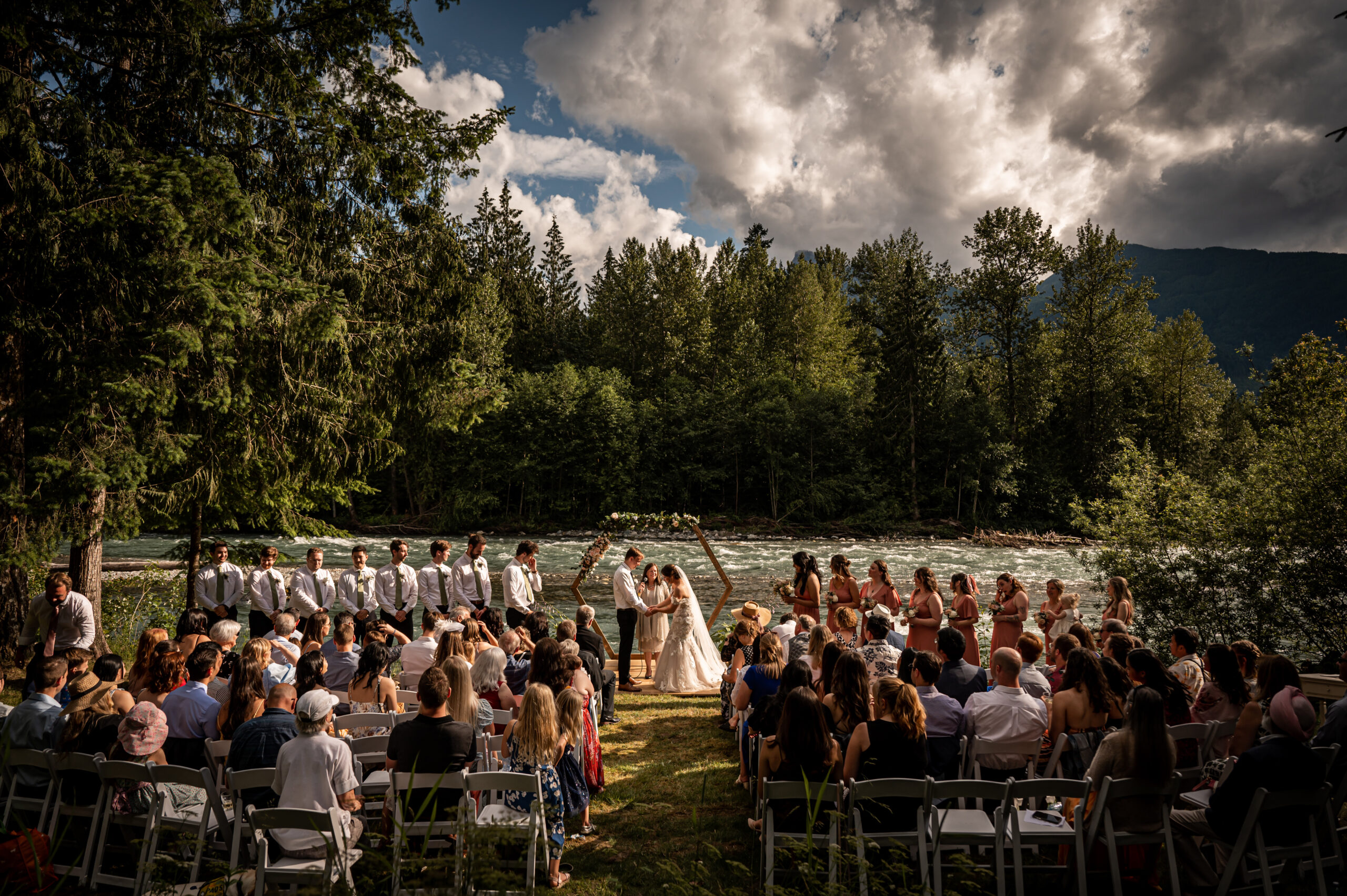
Set up and take down
Even if your venue is naturally beautiful, you’ll likely have a few things you want to set up before your ceremony or reception. Many couples bring in decor, lighting, flowers, chairs, tables and more. You’ll want to double check with your venue when your vendors can come in to start setting up. You’ll also want to know exactly when everything needs to be out; some venues allow you to come back the next day and pick up items while others need you to clear out immediately after your wedding is over.
Can you have items dropped off at your venue ahead of time? If so, is there a cost for the venue to receive and store these items? Is there a space to store them, such as a room, closet or fridge? Some vendors also charge extra if they have to take items up and down stairs, so it’s a good idea to inquire about a delivery entrance and/or elevator.
Accommodation at/near the venue
Does your wedding venue also offer accommodation? Many couples choose to get married at hotels, resorts, inns or glamping sites where they can not only host their wedding, but also stay a few nights. Staying on-site before and after your wedding can be very convenient. You can plan additional events, making it a full wedding weekend, and not have to worry about transportation or running late. Of course, planning extra wedding events and staying over a few nights can be expensive.
If accommodation is offered, is there space for guests to stay too? Many venues with accommodation will offer room blocks and special rates to wedding guests. If there isn’t accommodation on-site and you or your guests are travelling in for the wedding, you’ll want to research accommodation options nearby.
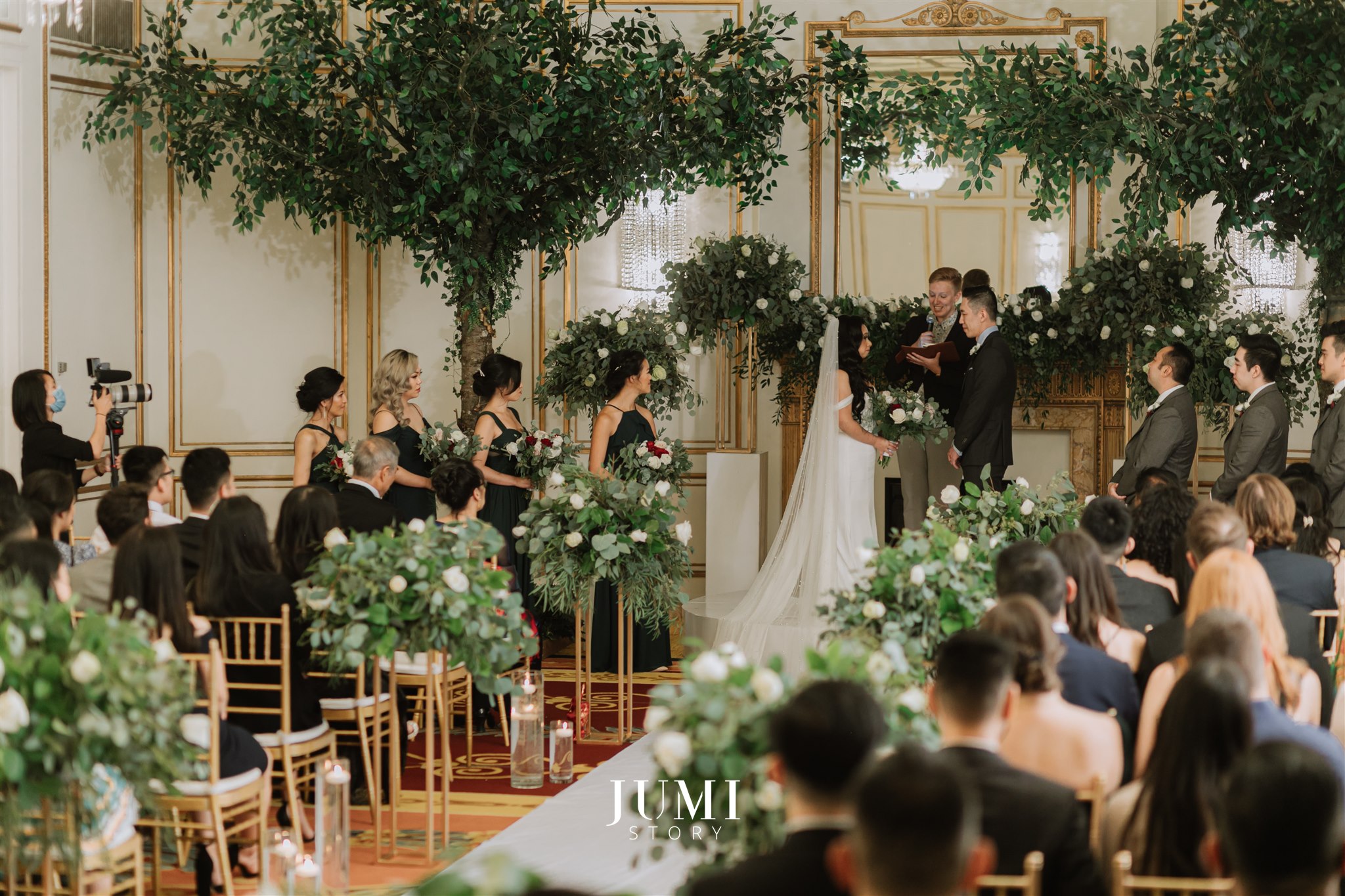
by Jumi Story
Experience with weddings
Is experience something you look for in a wedding venue? A wedding venue that has hosted hundreds of weddings over the years may be able to offer more expertise for your wedding day. They will likely have processes in place for how to run weddings and experience handling any hiccups. They may even have an entire staff team dedicated to hosting weddings.
That’s not to say that new venues are the wrong choice. Sometimes a new wedding venue, or a venue that isn’t usually used for weddings, can offer their services at a discount, which helps couples on a budget. They may also be able to offer more personal or more flexible services, since you are one of their first weddings. That being said, they may also run into some challenges if they haven’t hosted many weddings before.
Regardless of whether you go with an old or a new venue, make sure you ask the right questions and are comfortable with the level of experience your venue offers.
Wedding venue restrictions
No one wants to talk about the things you can’t do at a wedding venue. But it’s important to inquire about restrictions when you’re venue shopping, as they may be deal breakers for your wedding. Some common restrictions to ask about include:
- When does the music need to end? Are there quiet hours you have to respect?
- Are certain decor items restricted? For example, some venues prohibit flames (candles) or confetti.
- If you’re bringing in and serving alcohol, what are the restrictions of the liquor licence?
- Are there restrictions around the kind of entertainment you can have? Some venues may have rules in place for live bands or DJs.
- Can you remove any of the current decor? Can you rearrange the current set up?
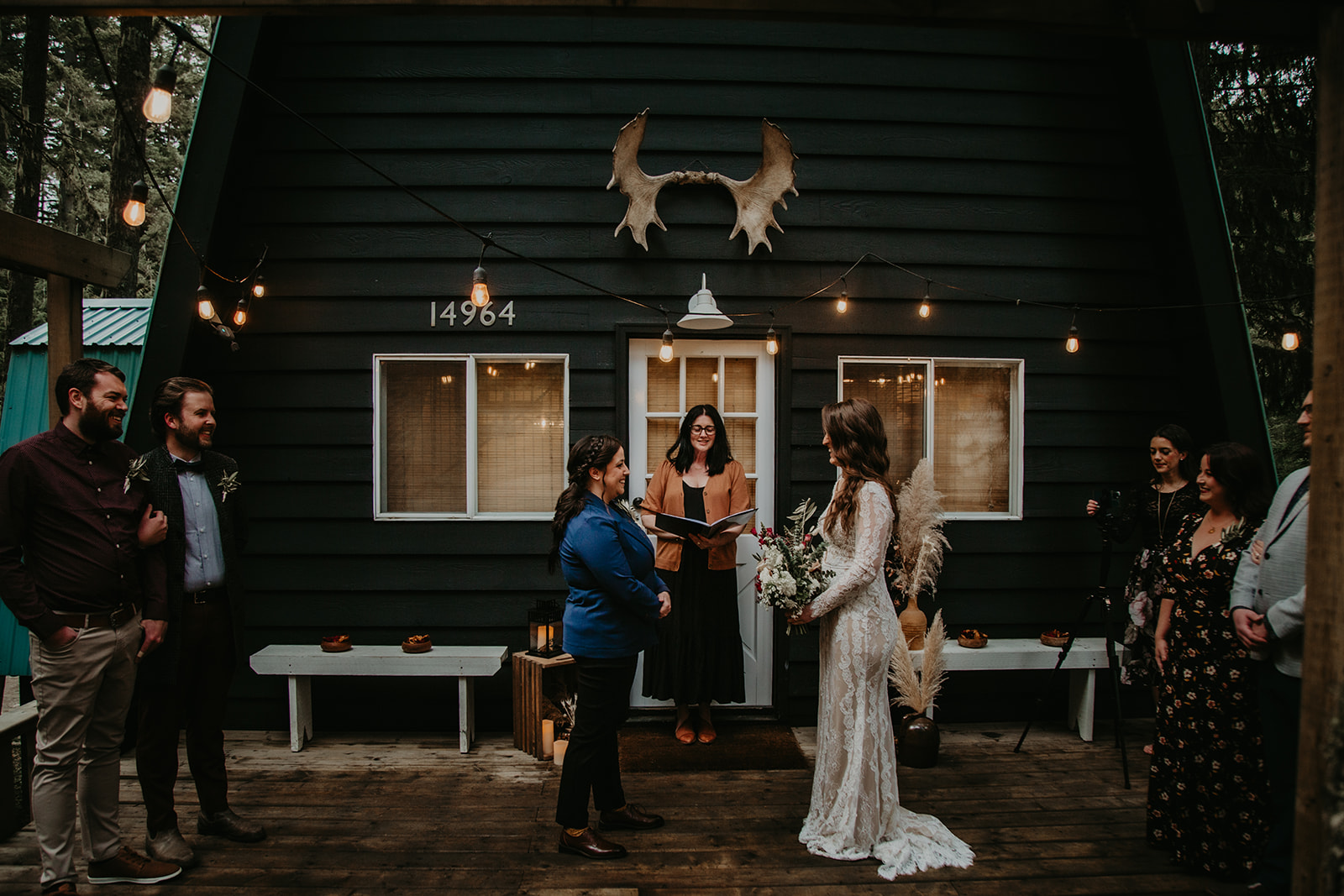
Reviews and contracts
Before you make a decision about your wedding venue, make sure you do some homework. Look up the venue’s Google listing or listing on wedding vendor databases, like The Knot or Wedding Wire. What do past couples say? Read through reviews and look up photos so you have a better idea of what a wedding at that venue will look and feel like.
You’ll also want to read through any contracts or paperwork your venue provides. We’ve all scrolled to the bottom and agreed to terms and conditions without reading them but in this case, it pays to take a few minutes to read properly. There are too many horror stories of couples losing money and having horrible experiences because of a misunderstood or overlooked contract. If you’re unsure about anything in the contract, just ask!
Some key things to look out for in your contract: How much are you paying, what is included and when is the payment due? What happens if you need to postpone, reschedule or cancel your wedding? In what scenario could you terminate the contract, if needed?
Make sure everything you’ve discussed with the venue – such as what spaces you’ll be using, what services are included, and your total guest count – is included in your contract. You don’t want to be a few months out from your wedding only to find out the ceremony space you loved isn’t included in your venue contract, even though you discussed it at the venue visit.
Communication and care
An overlooked, but very important, aspect you’ll want in your wedding venue is excellent communication and care. You want to work with a venue that wants to work with you. That means they are responsive, transparent and respectful.
Good communication doesn’t necessarily mean you’re able to text the venue manager all day long or call them in the middle of the night with your questions. Wedding vendors are busy! But you should expect to receive responses to your calls, emails and questions in a reasonable amount of time. If you’re just trying to book a venue visit and haven’t heard back in weeks, that’s a red flag.
You also want communication with your venue to be transparent. Are they upfront about any fees or are there hidden costs? Do they answer questions directly? If you bring up something you read in a bad review, how do they respond?
Lastly, but most importantly, does your wedding venue value you? While you might just be one of a hundred weddings they host each year, do you feel like you have the information and support you need? Do they care about your wedding? Are they inclusive and supportive of your marriage? Even huge venues can and should take the time to make you feel like a valued, respected and celebrated customer.
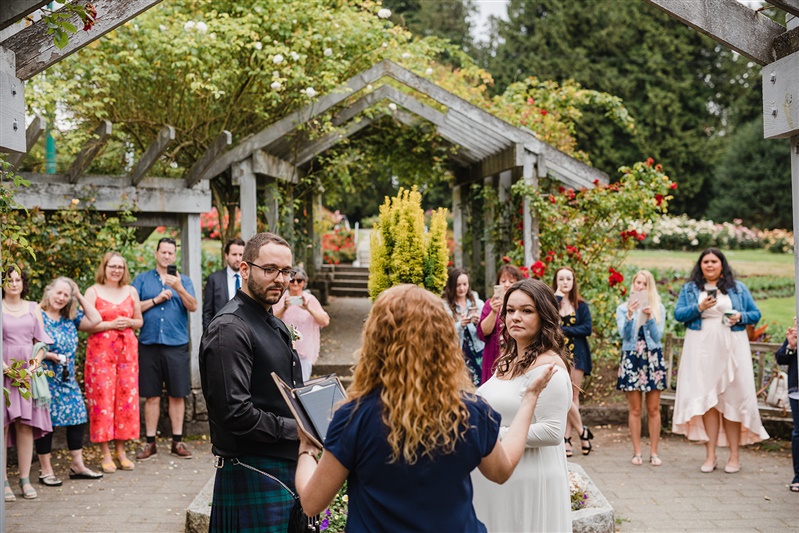
by Amber Leigh Photography
Vibe: How does the wedding venue make you feel?
The last thing to check in on with any potential wedding venue is the overall vibe. How did you feel when you first walked into the space? How did you feel when you met the venue manager and heard about the services? After you slept on it, were you just as excited about the venue the next day?
Are you comfortable with the contract and cost? How do you think your guests will feel at the venue? What is the overall emotion or feeling you have when you think about hosting your wedding at that venue? You should feel good about your wedding venue, which is why doing a “vibe check” is so important.
It can be hard to remember everything you learned about a venue, especially if you’re visiting quite a few, so we recommend taking notes during your venue tours. Immediately after a tour, sit down with your partner to discuss how you both feel about the space and take notes on that too. This can be as simple as typed notes or a voice note on your phone. That way, you can read or listen back to the notes and remember how you felt in the moment.
Now that you know what you should look for in a wedding venue, you’re well on your way to finding and booking the perfect venue! Once your venue is booked, you can begin booking your other vendors. Meet our team of wedding officiants and get in touch to book your ceremony package!
